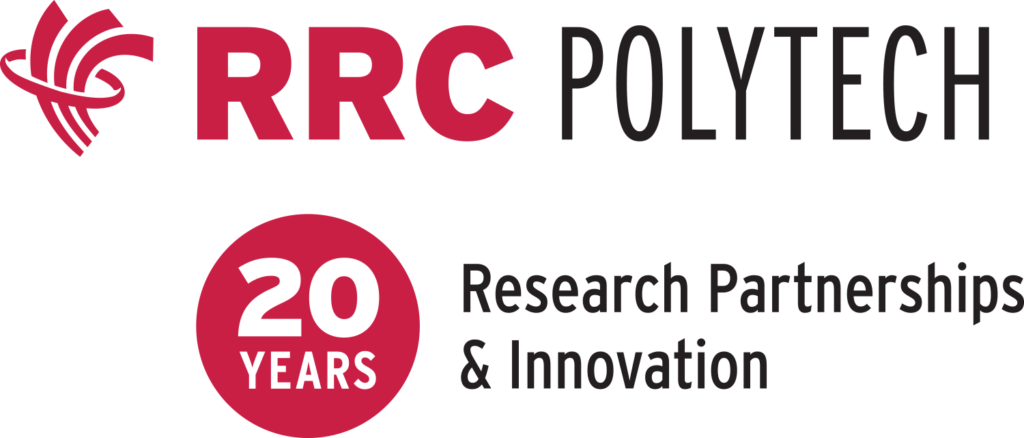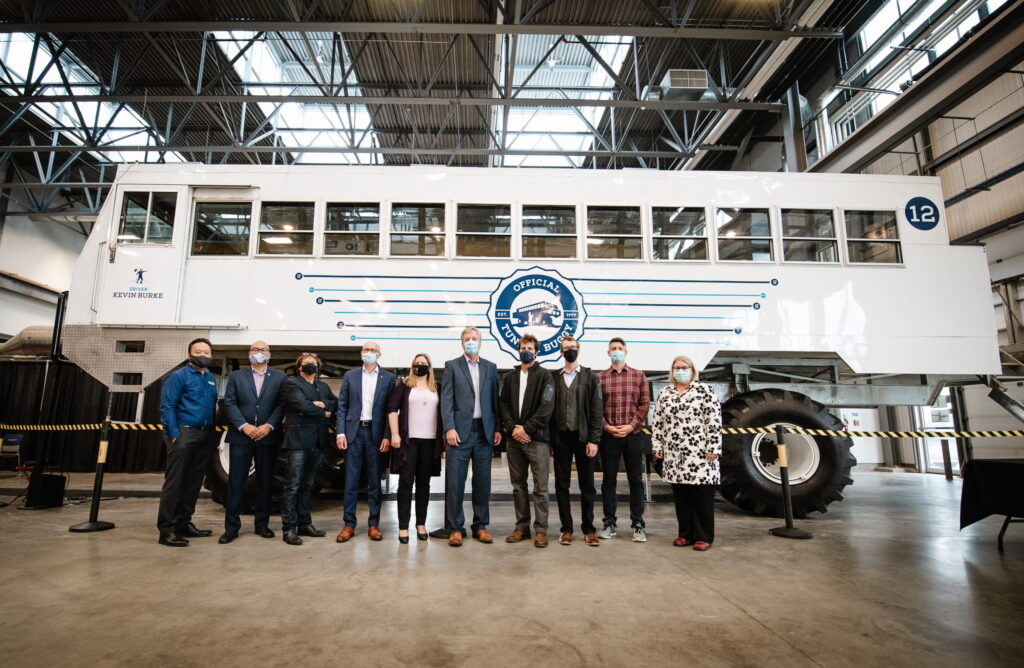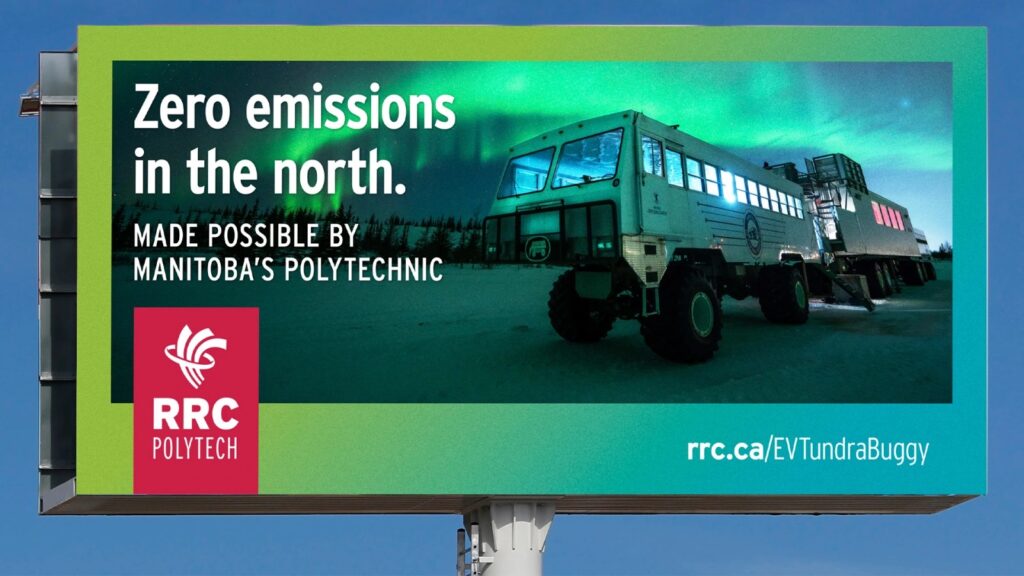RPI’s 20 Stories for 20 Years – EV Tundra Buggy

To demonstrate the impact that applied research projects make on all Manitobans, we present RPI’s 20 Stories for 20 Years. A compilation showcasing successful partnerships from the past and the present, with a constant focus on the future.
It was once unfathomable to build an electric battery that could power a Tundra Buggy in Churchill’s extreme weather conditions and allow visiting tourists to marvel at the wonders of nature in near silence. And yet, that’s exactly what RRC Polytech’s Vehicle Technology & Energy Centre (VTEC) and industry partner, Noble Northern, accomplished through applied research.
“Our teams worked together on the design and integration of the electric components, focusing on optimizing performance, range and reliability,” said Tye Noble, CEO of Noble Northern.
On Aug. 24, 2021, Frontiers North Adventures and RRC Polytech unveiled the first Electric Vehicle Tundra Buggy®. Ever since, the EV Tundra Buggy has reduced Frontier North’s GHG emissions and operated in all of Churchill’s subarctic seasons.
This zero-emission vehicle technology initiative leveraged Noble Northern’s in-depth knowledge of EV conversion and built on VTEC’s existing work electrifying transit buses.
“This involved extensive engineering work, including adapting the vehicle’s existing systems to support the new electric powertrain and ensuring that all modifications met rigorous performance and safety standards,” said Noble.
Together, they repurposed an e-bus battery to create an innovative solution that reduces noise pollution and addresses the climate crisis at a local level. The EV Tundra Buggy garnered massive media interest, solidified RRC Polytech’s reputation as a leader in EV technology and promoted the geography and people of Northern Manitoba. Noble said the partnership with VTEC significantly elevated the company’s profile in the EV conversion industry.
“Working on the EV Tundra Buggy project allowed us to showcase our technical capabilities and commitment to innovation,” said Noble.
“It also provided us with valuable experience in adapting our technology to specialized applications, which in turn attracted further opportunities and projects. The success of this project reinforced our reputation for delivering high-quality, effective solutions, and enhanced our business relationships and market position.”
The EV Tundra Buggy was made possible through the province’s Conservation and Climate Fund and the Vehicle Technology Centre (VTCI) — a non-profit organization dedicated to supporting Manitoba’s heavy vehicle manufacturing sector. VTEC also provided in-kind support and technical services.
“The EV Tundra Buggy project is a quintessential made-in-Manitoba story. It has links to conservation, tourism and environmental stewardship, highlighting the ability of industry partnerships to create positive impact in Manitoba, for Manitobans, through reducing environmental impact and benefitting our local economy,” said Fred Meier, President and CEO, RRC Polytech.
It was just a few months after the unveiling, that Red River College evolved into RRC Polytech to better reflect its rapidly growing applied research capabilities and academic agility to support industry with the workforce of tomorrow. The EV Tundra Buggy project helped demonstrate to Manitobans that polytechnics help make things possible – things that would be impossible, were it not for our involvement. By the time, the project was featured in 2023’s comprehensive billboard, radio, print, digital and bus bench advertising campaign, the institution’s new identity had been embraced and it was chosen to showcase how we find solutions to local and global problems.
The project continues to resonate for all three partners today, as Frontiers North continues to shift its entire touring fleet of Tundra Buggies from diesel-powered to battery-electric. While in addition to lending their support, VTEC and Noble Northern are also using the valuable knowledge gained in their first successful endeavour, as they team up on an active school bus electrification project.


